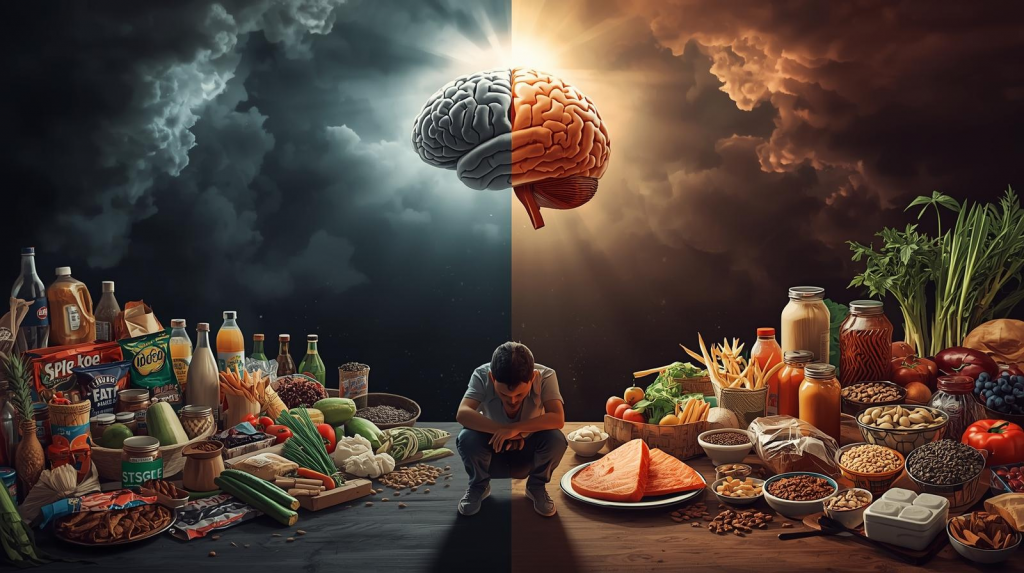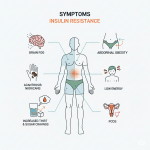Beyond Pills and Talk: A Simple, Whole-Person Path to Depression Recovery

Why medicine and counselling may help, but rarely fix everything on their own. Depression is common. It affects many of us. Sometimes it lifts for a while. Then it returns. Medicines and counselling often help. Even so, they may miss root causes. So a wider plan can help both brain and body. As a result, change can last longer.
What Current Care Does Well — and Where It Falls Short
Antidepressants: useful supports, not cures for Depression
Antidepressants can give you space to breathe. They can reduce risk. They can help you work, care, and cope. However, many people still have symptoms. For example, only about one third reach full relief after the first step of treatment. Therefore, reviews with your clinician matter.
Long-term notes to discuss
- First, some big studies link long-term use with higher health risks. This shows association, not proof. Even so, it is wise to check in often.
- Next, stopping too fast can trigger withdrawal. About one in six people feel it. So plan a slow, supported taper.
- Finally, guidance in the UK suggests gradual dose cuts to lower that risk.
About “low serotonin.”
For many years people were told that depression came from a “chemical imbalance,” mainly too little serotonin in the brain. This story made antidepressants sound like a direct “fix.” But recent reviews of the science have not found strong proof that low serotonin alone explains depression. Some experts argue the evidence is mixed, others say the theory was always too narrow. What we know now is that depression is more complex: it can involve stress hormones, brain circuits, trauma, inflammation, lifestyle factors, and social stress. So rather than one cause, it’s many small factors coming together. That is why broad plans — combining therapy, lifestyle, and sometimes medication, make more sense than focusing on serotonin alone.
Counselling: important, yet but sometimes incomplete
Talk therapy can help you make sense of pain. It also improves patterns and choices. But when you retell a trauma, your body can react as if it is happening now. As a result, your heart rate can rise. Your palms can sweat. Your muscles can tense. In some people, stress hormones also spike during a trauma script. In the brain, the alarm centre can light up as well. Instead, trauma-focused methods, such as EMDR or trauma-focused CBT, pair the memory with body-calming skills. Then the brain can store the story as past, not present threat. Over time, triggers ease. And daily life gets simpler.
What is EMDR?
Eye Movement Desensitization and Reprocessing (EMDR) is a therapy first developed for trauma. In a session, you briefly recall a difficult memory while your therapist guides you through side-to-side eye movements, tapping, or sounds. These “bilateral” actions keep part of your brain in the present while you revisit the past. As a result, the memory becomes less raw and feels more like something that happened, not something that is still happening. Over time, many people report fewer flashbacks, less anxiety, and an easier time moving forward.
The Science in Plain English
Your brain can change
Because your brain learns, it can change at any age. With practice, it builds new paths. For instance, short mindfulness courses can nudge stress circuits toward calm. Therefore, small daily habits add up.
Fast calm tools for your nerves
- Breathing. Try five minutes each day. For example, longer exhales can settle the body fast. Then your thoughts follow.
- Mindfulness. Start with ten minutes. Over time, practice steadies attention and emotion.
- Grounding. Also try simple senses work: feel your feet, name five things you see, and so on. As a result, your system stands down.
Everyday Mastery Have a great post on Creating New Habits
A Simple Recovery Framework for Depression
1) Food first (aim for ~80% whole foods)
Your brain runs on nutrients. So choose mostly whole foods.
- Fermented foods like kefir, yogurt, sauerkraut, and kimchi. These can support your gut and lower body-wide stress signals.
- Fibre-rich foods feed helpful gut bugs. In turn, they make compounds that may support mood.
- Omega-3 sources such as fish, walnuts, and flax. These help build healthy brain cells.
- Colourful plants add antioxidants that protect brain tissue.
- Slow carbs like oats, beans, and brown rice steady energy.
Plain talk: food by itself is not a guaranteed cure for depression. But it can have a big effect. In the SMILES trial, people who switched to a Mediterranean-style diet had much larger improvements in mood than those who only received social support. Other studies show that better diet quality links to lower depression risk, while diets heavy in processed foods link to higher risk. So, nutrition is not “just an extra.” It is a core part of recovery and can make other treatments work even better.
Understanding gut health and how diet affects brain chemistry is key. Explore our Brain Health guide for insights into how food, lifestyle, and mindset shape mental clarity and mood.
2) Therapy that processes — more than it replays
In particular, look for trauma-focused CBT or EMDR. Also add gentle body skills like paced breathing and grounding. Together, these help your system file the story and move on.
3) Nature, little and often
In addition, green spaces soothe stress. Even a short park walk helps. Likewise, gardening counts. Over weeks, these small sessions can lower cortisol and blood pressure.
Why green spaces really help: When you spend time in nature — a park, garden, or woods, your body’s stress alarms tend to calm down. Studies show cortisol (a stress hormone) drops, your heart rate slows, and even blood pressure can go down, especially if you walk or sit there for 20-30 minutes. Researchers like Dr. Marc Berman show that just short, regular “nature pills” do this. Dr. Chatterjee also points out that living near trees or seeing greenery from your window helps too. In short, green exposure gives your body a chance to rest and reset.
4) Move in ways you will keep
Overall, movement is a steady mood booster. Walking, light jogging, yoga, and strength work all help. So pick what you enjoy. Then repeat it.
5) Use Depression medication strategically
If you need antidepressants, use them alongside the steps above. Also set regular reviews. Then plan a slow taper when you are ready. Never stop suddenly. Instead, work with your clinician.
Why This Whole-Person Plan Helps with Depression
- Biology. Food, sleep, movement, breath, and nature nudge stress and inflammation the right way.
- Psychology. Targeted therapies retrain threat circuits and thinking habits.
- Environment. Simple routines and green space buffer daily stress.
First Steps You Can Take This Week for Depression
First, add one fermented food each day.
Next, do five minutes of breathing each morning.
Then, take a ten-minute nature walk after lunch.
Also, book a chat with a trauma-focused therapist (TF-CBT or EMDR).
Finally, add two short movement sessions this week — anything you like.
What We Still Don’t Fully Know
Scientists agree on one thing: the jury is still out on exactly why depression occurs. It is unlikely to come from one single cause. Instead, it seems to arise from a mix of factors things like:
- stress hormones that stay high for too long
- brain circuits that get stuck in loops of repeated negative thoughts
- gut–brain signals that change when diet and microbes are out of balance
- past trauma that keeps the alarm system switched on
- lifestyle and social stresses that wear down resilience
Because depression has many roots, it makes sense that recovery can also have many paths. That is why strategies such as better food, steady movement, trauma-focused therapy, calming breathwork, and time in nature can help.
Research shows that people who adopt these habits often see real improvements in mood and daily function — sometimes alongside medication, sometimes with less medication over time. Healing is rarely quick or straight, but it is possible. Every small step shifts the brain and body in a healthier direction.
In short: we may not know the cause of depression, but we do know that the choices above can give the brain and body the best chance to recover.
This guide is educational. It is not medical advice. Please talk with your clinician before changing medication or treatment.
STAR*D depression treatment study – NIMH
Safe tapering guidance – NICE UK
Does low serotonin explain depression? – Nature review
What is EMDR? – EMDR International Association
NICE PTSD guidelines (trauma-focused CBT & EMDR)
Mindfulness changes the brain – Harvard Gazette

